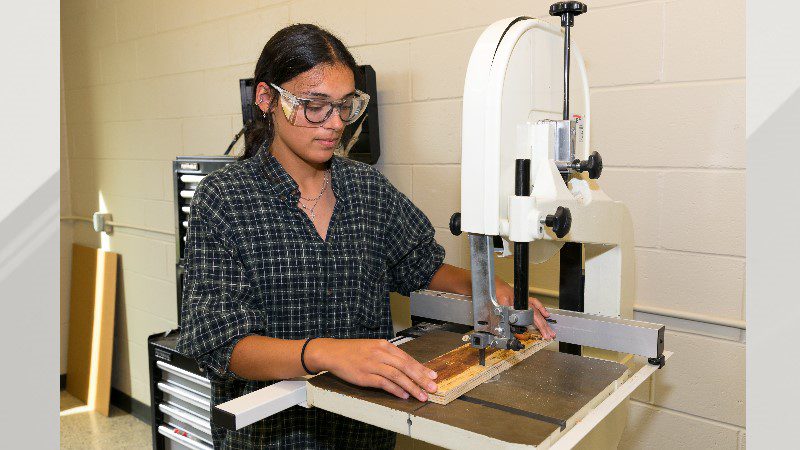MN North receives $3M Blandin Foundation grant
[anvplayer video=”5161519″ station=”998130″]
Minnesota North College has launched an all-new initiative to transform the way it teaches, trains, and supports students. AspireNORTH is a plan to get students and workers alike in the training they need, to fill the region’s jobs.
The Blandin Foundation has awarded MN North a $3 million, three-year grant to support the AspireNORTH program.
“We’ve taken a bold step with this grant, enabling the leadership of MN North to think big and truly redesign how their system serves this region of the state,” said Tuleah Palmer, Blandin Foundation President and CEO. ”Right now, our approaches leave behind more workers than we help. AspireNORTH will shift the approach from focusing on how the individual is performing within the system to focusing on how the system is performing for the individual. That requires a whole new framework of regional coordination and leadership to build prosperity for our marginalized workers and keep our wealth of knowledge and money close to home.”
AspireNORTH builds on the momentum created by the merger of the five participating campuses into a single higher-education institution, which was completed last May. The shift resulted in a nearly 25% decline in enrollment since 2016. MN North says it sparked conversations across the system about how the school is providing educational opportunities.
“Blandin’s investment in Minnesota North College’s AspireNORTH project will significantly strengthen our ability to attract and robustly support traditionally underrepresented students in our region by meeting them where they are at as they balance their learning, work, and other responsibilities,” said Dr. Michael Raich, President of Minnesota North College. “In turn, our local business and industries will ultimately benefit from a larger and more diverse group of skilled graduates.”

Minnesota North College
In the first year, AspireNORTH plans to add an American Indian Education coordinator, a career navigation coordinator and bolster mental health supports. Trauma-informed training for current staff to recognize signs of life challenges like homelessness, mental health emergencies and substance use, cultural competency and adult learning theory will connect students with resources that help them reach their career goals.
- Significant transitions in Northeastern Minnesota including large numbers of retirements, mining and forest industries ramping up green operations, and growing income gaps for women, workers of color and those with disabilities all add up to historic demand for workers in a region with:
- About 2 jobs open for every available worker
- A 57% labor participation rate, 12 percent lower than the state overall
- A 4.3%, all-time low unemployment rate
- A poverty rate of 11.2%, almost 2 points higher than the statewide rate
- A median annual household income $14,000 lower than Minnesota a whole, at $59,000
- Statistics that are even worse for Native Minnesotans
- Too few leaders in nonprofits and local governments
“We want to encourage people to participate in learning at some level, whether that’s a short-term course for certification or completing a two-year degree,” said Dr. Trent Janezich, executive director of advancement and customized training solutions at MN North College. “This grant allows us to welcome people who haven’t participated before.”